
History of Sewing Thread

Sewing thread is a crucial element in the world of fashion, textiles, and crafts. It has played a fundamental role for thousands of years, dating back to ancient civilizations. Here, we delve into the rich history of sewing thread and how it has evolved over time.
Ancient Origins
The origins of sewing thread can be traced back to prehistoric times. Early humans used animal sinews, tendons, and veins to create primitive string and thread. These materials were used for sewing animal skins together to create clothing, shelter, and other essential items.
Egyptian Era
In ancient Egypt, around 2600-2200 BCE, the art of spinning and weaving fibers reached new heights. Egyptians began using flax fibers to create linen threads for sewing. Linen threads were highly valued for their strength and durability, making Egyptian clothing and textiles highly sought after around the world.

Medieval Europe
During the medieval period in Europe, sewing thread production expanded significantly. Threads were primarily made from silk and often hand-spun. The skill of silk production became an essential trade, with Italy and France becoming renowned centers for silk thread manufacturing.
Industrial Revolution
The invention of the sewing machine in the late 18th century, followed by technological advancements during the industrial revolution, revolutionized the production of sewing thread. Cotton became a popular material for thread manufacturing due to its affordability and versatility. The introduction of mechanized spinning systems drastically increased thread production rates.

Modern Thread Production
Today, sewing thread production involves a variety of materials, including cotton, polyester, silk, nylon, and rayon. These threads come in different thicknesses, known as thread gauges, to accommodate various sewing projects. The development of synthetic fibers has further expanded the choices available to modern craftsmen and designers.
Conclusion
Sewing thread has come a long way from its humble beginnings. From animal tendons to advanced synthetic materials, it has been an integral part of human civilization’s progression. The evolution of sewing thread continues to influence the world of fashion, design, and craftsmanship, shaping the way we create garments and textiles today.
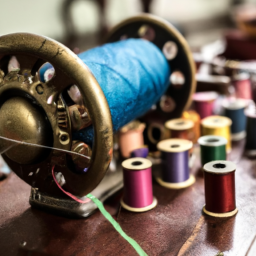
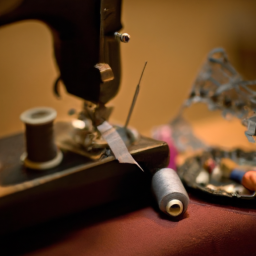
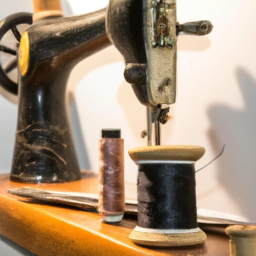
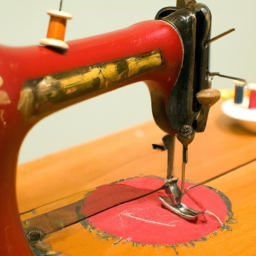
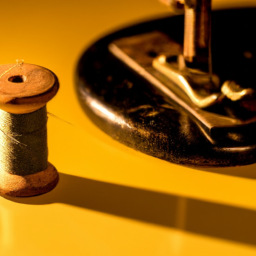
Fascinating!
Tara Smith: Love learning about our history!
From ancient Greeks to modern needle and thread, the history of sewing thread is truly awe-inspiring! It is amazing to think of how much progress has been made throughout the centuries and how far technology has come.